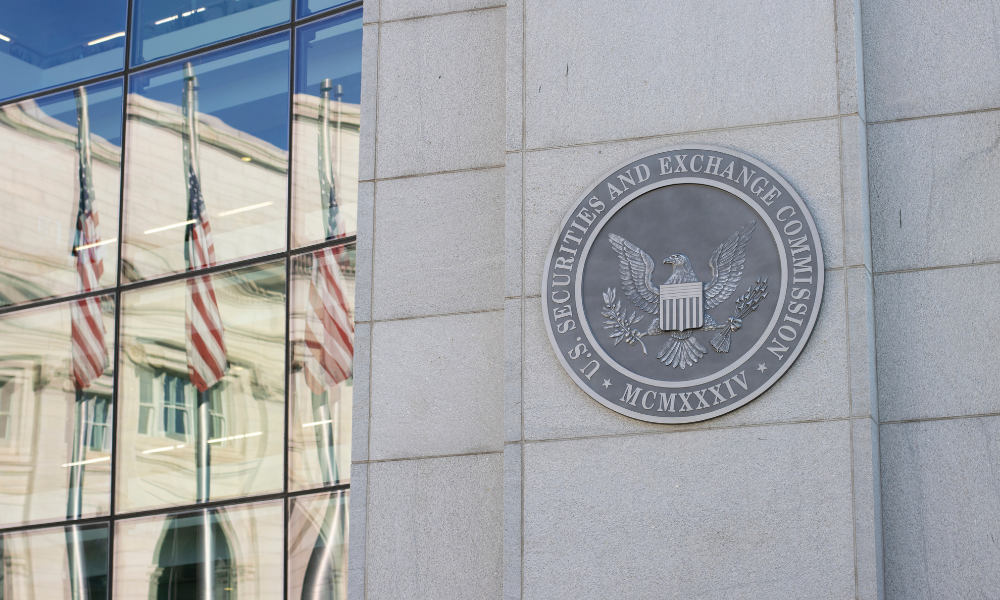The SEC has officially withdrawn proposed rules for ESG fund disclosures and shareholder submission reforms, halting a major Biden-era regulatory push.
The decision follows rising political pressure and signals a broader shift in the SEC’s stance on climate-related regulation.
The withdrawal means ESG-labeled funds will not face new anti-greenwashing disclosure requirements, and shareholder proposal thresholds from 2020 remain intact.
The U.S. Securities and Exchange Commission (SEC) has formally withdrawn two proposed rules central to the Biden-era ESG regulatory agenda—one requiring enhanced ESG disclosures from investment advisers, and another revising the shareholder proposal and resubmission process.
These rules were among 14 proposals the SEC abandoned last week in an updated regulatory agenda, reflecting a pivot away from former Chair Gary Gensler’s climate and ESG focus.
“The Commission does not intend to issue final rules with respect to these proposals. If the Commission decides to pursue future regulatory action in any of these areas, it will issue a new proposed rule,” the SEC stated.
End of ESG Disclosure Push
Originally proposed in May 2022, the “Enhanced Disclosures by Certain Investment Advisers and Investment Companies About Environmental, Social, and Governance Investment Practices” rule was designed to standardize ESG-related fund disclosures and combat greenwashing.
The rule aimed to:
Require detailed ESG strategy disclosures in fund prospectuses, annual reports, and adviser brochures.
Mandate that ESG-focused funds disclose greenhouse gas emissions metrics, including carbon footprint and intensity.
Present ESG information in a standardized, tabular format to enhance investor comparisons.
At the time, the SEC warned that a lack of consistent ESG data “makes it difficult for investors to make better informed investment decisions that are in line with their ESG investment goals,” and “may lead to potential greenwashing.”
Despite Democratic pressure to finalize the rule, it was never released. The timeline slipped from an initial target of April 2024 to October 2024—then stalled with the shift in administration. Republican lawmakers later urged the SEC to rescind the rule, citing regulatory overreach.
RELATED ARTICLE: SEC Proposes Updates to Ethics Rules Governing Securities Trading by Personnel
Shareholder Proposal Reform Abandoned
The SEC also dropped its proposed July 2022 rule to revise the shareholder proposal and resubmission process. The changes were intended to replace a Trump-era rule that had raised the thresholds for submitting proposals to corporate boards.
Gensler’s SEC had aimed to narrow the reasons a company could exclude shareholder proposals, such as those deemed substantially implemented, duplicative, or resubmitted.
However, a federal judge recently dismissed a lawsuit brought by responsible investing groups challenging the 2020 rule, effectively clearing the path for its continued application.
Broader Climate Retreat
The SEC’s ESG rule withdrawals align with its March decision to stop defending its separate climate risk disclosure rule in court. This strategic retreat follows mounting legal and political resistance to climate-related financial regulation.
Other ESG-related rules have faced similar setbacks. The Department of Labor recently announced it would rescind and rewrite its rule allowing retirement plan managers to consider ESG factors.
The SEC’s decision not only halts further development of these rules but also signals a return to more conservative regulatory ground. With ESG enforcement scaled back, fund managers may face fewer compliance burdens—but investors may encounter less clarity in ESG product labeling.
Follow ESG News on LinkedIn

